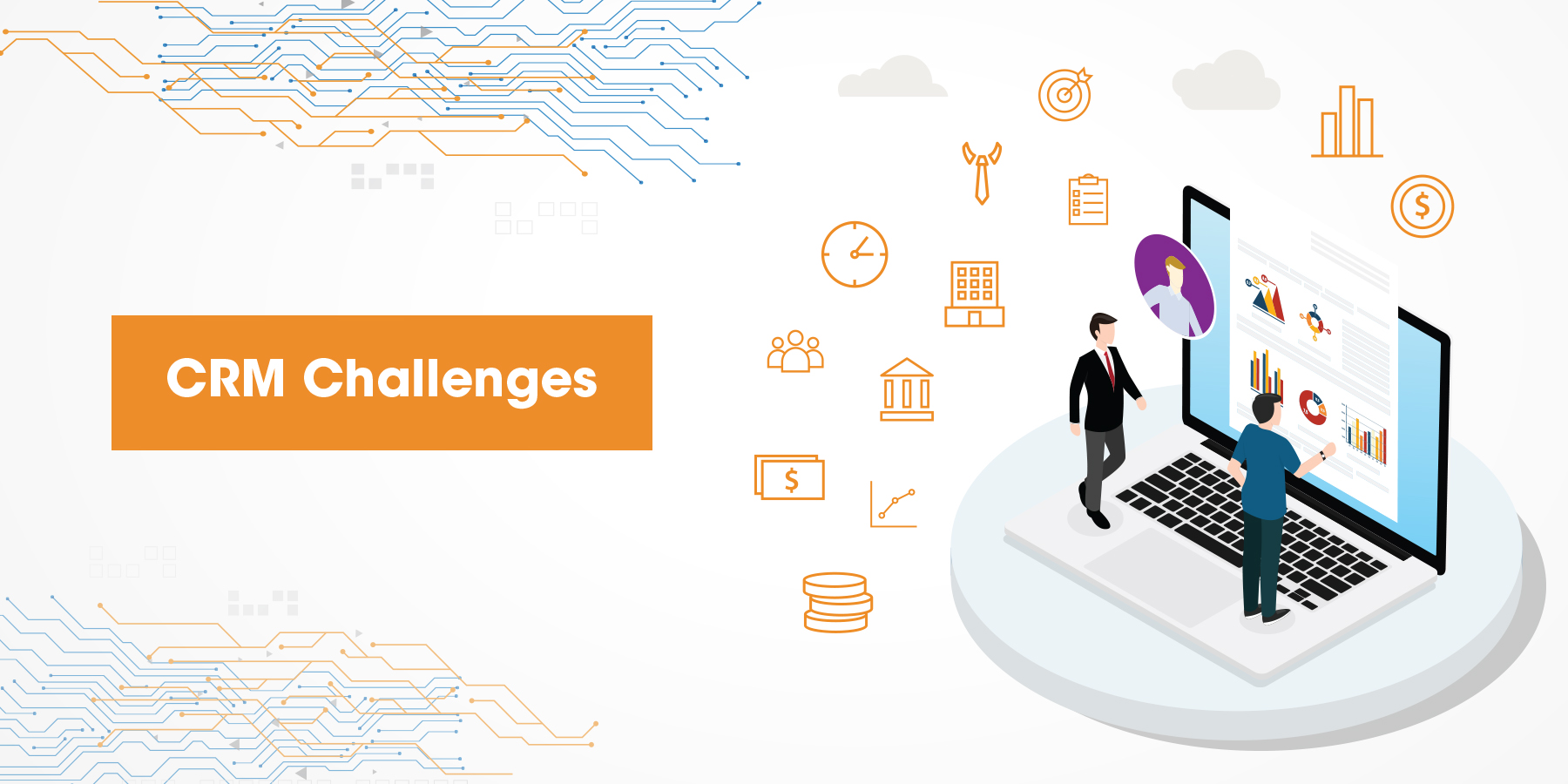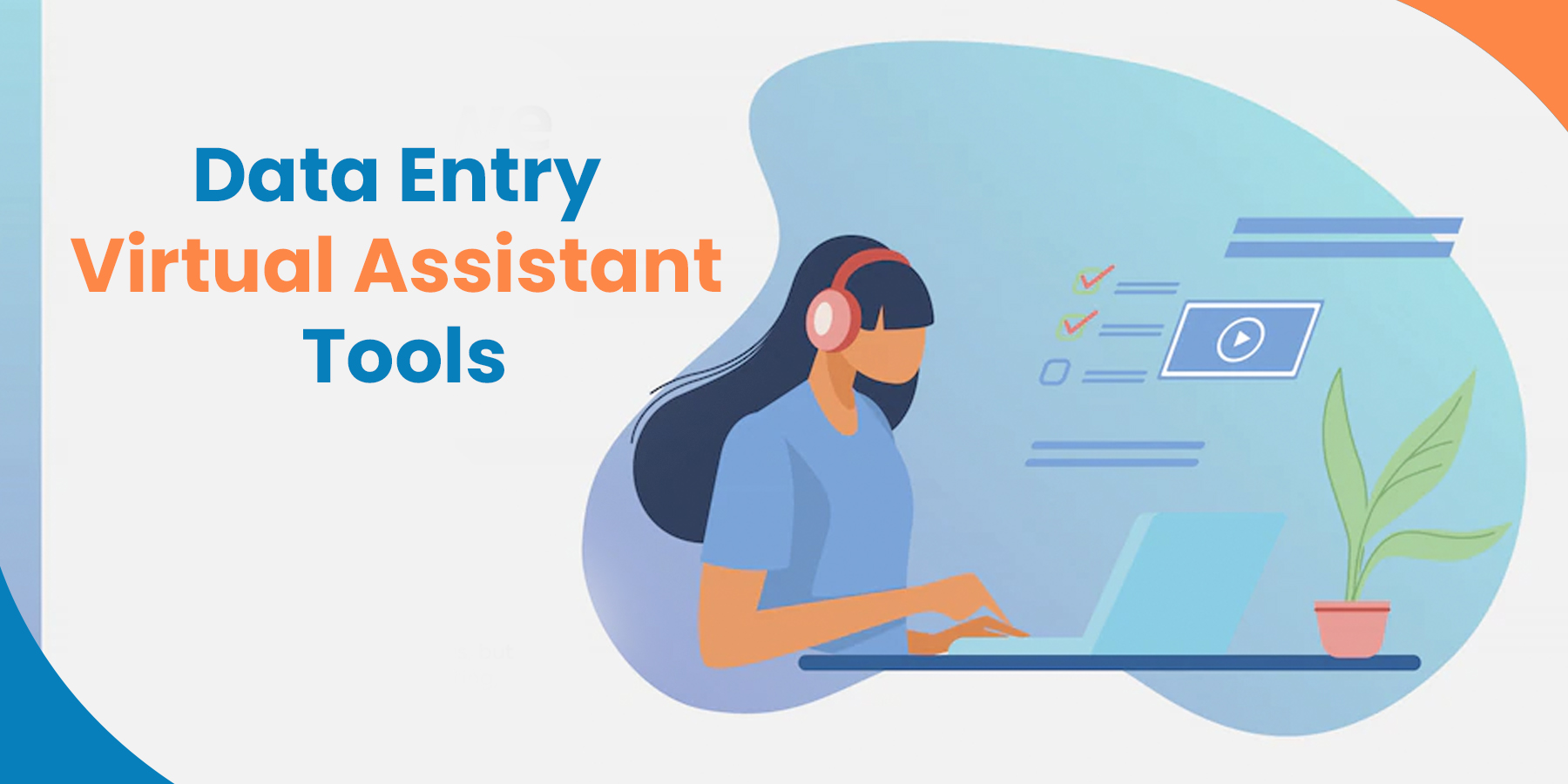Top 8 Challenges of CRM Customization and Implementation
Last updated on September 9th, 2025
We are living in a fast-paced digital era where a new business is surfacing every other day. CRM customization will help you achieve your organizational objectives by designing small and efficient modules and working on the layout effortlessly. Each organization differs in processes, and customization is the only solution to enhance productivity. However, it’s also crucial to acknowledge the CRM implementation challenges that often arise, such as lack of user adoption, system integration issues, and unclear objectives. Any CRM initiative without a goal will eventually collapse. When it comes to CRM, it’s essential to understand the benefits, challenges, and solutions before beginning your process.
Table of Contents
CRM Customization, the Need of the Hour: Why Do You Need Customization?
The Difference Between CRM Customization and Configuration
8 Challenges of CRM Implementation and Customization
Common CRM Customization Mistakes to Avoid
How CRM Customization Solves Industry-Specific Challenges
How to Choose the Right CRM Customization Services?
Frequently Asked Questions (FAQs)
CRM Customization, the Need of the Hour: Why Do You Need Customization?
A good CRM system gives your clients and prospects the freedom to do business with you the way they want. There are several CRM customization services available on the market. However, the one you choose must offer to help you enhance your sales and reach new heights in 2025. We will take a closer look at why your business needs CRM customization in the next section.
According to Business Research Insights, the global virtual assistant market was valued at USD 3.75 billion in 2024 and is projected to grow to USD 23.57 billion by 2033, with a CAGR of 22.3%—highlighting rapid adoption in support and CRM-linked tasks.
Precise Analytics
Tailored CRM provides accurate analytics department-wise that helps you analyze performance efficiently. You can continue with your current strategies if you are doing well; however, if there are deviations and your business goals are not met, you can make changes in plans effectively.
Manage Workflow
Automating and managing workflows such as follow-up calls, reminder emails, and assignments can be automated in the CRM. This ultimately enhances the conversion rate and improves revenue.
Cost Reduction
You might need to bear some expenses for CRM customization and implementation, but it is worth every penny in the long run. CRM customization not only involves creating custom fields and systems but removing those that are not necessary as well. Most importantly, CRM consulting services will automate your workflow and speed up the processes, saving you time and money.
User-Friendly
Users will find it easier to learn since a custom CRM will be designed exclusively to suit your business systems. With such a solution, you will need just a few hours of training to enhance productivity.
The Difference Between CRM Customization and Configuration
When deploying a CRM system, understanding the distinction between CRM customization and CRM configuration is crucial to maximizing efficiency and adoption. While both are essential components of CRM deployment, they serve different but complementary purposes.
What is CRM Customization?
CRM customization involves tailoring the CRM’s core functionality to match your business’s unique processes. This often includes:
- Creating or modifying custom modules (e.g., a real estate pipeline or B2B lead scoring system)
- Designing specific workflow automations (e.g., auto-assigning leads or sending follow-up reminders)
- Adding personalized dashboards and logic-based fields
Customization enables your CRM to go beyond basic functionality and work exactly the way your business needs it to.
What is CRM Configuration?
CRM configuration refers to setting up the CRM using its built-in tools and settings—without changing the source code. Common configuration tasks include:
- Setting user roles and access levels
- Creating or renaming fields to match internal terminology
- Establishing field security and audit logs
- Defining teams and hierarchy structures
Configuration helps ensure the CRM operates securely, intuitively, and in line with company policy.
Why You Need Both
For successful deployment, both CRM customization and configuration are necessary:
- Customization ensures the CRM fits your specific workflows and provides business value.
- Configuration makes the system easy to navigate and compliant with user access and governance rules.
Neglecting either can result in poor adoption, inefficiencies, or data security issues. That’s why many businesses turn to experienced CRM consulting services to guide the implementation from both ends.
8 Challenges of CRM Implementation and Customization
After you have honed in on the reasons why you need a CRM, the next step is to narrow down the possible CRM challenges and ways to overcome them. This is why we will look into the top 8 most commonly occurring challenges in CRM Customization and solutions to overcome them effectively.
1. Management Approval for CRM Customization
Top-level management might be unaware of the benefits of CRM implementation and customization. Hence, getting approval from management can be a big challenge. The sales team might be assertive with the idea of moving their company to the cloud, but executive managers might be more comfortable with the traditional approach.
Solution: Instilling a digital culture will reduce resistance in the workforce. The management can be persuaded by presenting the benefits of CRM and the tangible value it will add to the company.
2. Implementing CRM
There is no specific application that solves all integration problems. Large-scale implementation requires CRM customization and configurations. However, it takes time, technical knowledge, and huge bandwidth to move data to the cloud. Your employees would need time to get familiarized with the new CRM system. This will require an extensive investment of your time and finances for coaching, technology, and maintenance.
Solution: You can easily outsource CRM consulting services to Vgrow and use that time to run your business efficiently. In addition, Vgrow’s skilled employees would assist and ease your transition to CRM.
3. Trusting Technology
Before putting complete faith in the cloud, you should be aware of the infrastructure and scalability as your company grows. In addition, the software should be fully equipped with everything that your business needs.
Solution: Understanding the basics of CRM before adapting it is very crucial and will help you identify unforeseen circumstances.
4. Difficulty in Predicting Long-Term Changes
Irregular market forces in the world make it difficult to predict long-term technological changes. On the other hand, CRM systems are implemented and driven by technology. Hence, long-term strategy and goals must align with new trends in technology for operating with the CRM.
Solution: Companies that view CRM as an initiative and as a long-term strategy, not as software to install and maintain Word and PowerPoint can make the most out of their CRM.
5. New Programs And Software
A big challenge a company might face is to give up on popular software after transitioning to CRM. This could create a potential disruption in the performance of their employees. In addition, it will take time and training to be well-versed in the new software and programs offered by the CRM company.
Solution: Nowadays, CRM customization has popular programs and software accessible. Thus, by integrating your software into the CRM platform as a plug-in to the main CRM service, you can continue working on any software of your preference. In addition, Vgrow provides in-depth CRM consulting services to help new companies with their CRM.
6. Data Security Associated
A business has data about its customers, accounts, taxation, and marketing and sales research, making it crucial for future operations. Perhaps, it is the most valuable asset of any company, so data security is important.
Solution: Choosing the right CRM service that will make data importing easy and intuitive to facilitate a smooth transition. With secured data, your team will be able to use it to its full potential. Small and medium business enterprises are transitioning to CRM because of its efficiency, and Vgrow helps in CRM customization to scale your business to the next level.
7. Proper training for employees
Many employees may resist CRM and would like to adhere to the traditional approach of functioning. The mindset shift regarding CRM and innovation can become challenging. Some employees might stress their privacy while others may worry about their job security.
Solution: One of the main reasons employees struggle to accept cloud migration is because of the company’s undefined and unclear strategy. Managers must lead and inculcate a culture of learning and digital innovation.
8. Defining Clear Objectives
CRM systems should be closely linked with business objectives and goals. This includes both short-term and long-term strategies that should be taken into account and aligned with the scope of a CRM.
Solution: CRM customization is a long-term strategy and planning on the following points will help a business grow with CRM.
- Have defined metrics in place to measure success.
- Prioritize outcomes proportionate to the impact.
- Define the most important outcomes of your business.
Thus, these were the 8 challenges of CRM customization and effective solutions to overcome them. The next step is to choose the right CRM solutions for your business that perform above and beyond basic CRM tasks.
Common CRM Customization Mistakes to Avoid
Even with the best intentions, businesses can make costly errors when customizing their CRM. While CRM customization services can unlock efficiency, poor planning or execution can turn your CRM into a bottleneck instead of a booster.
1. Over-Customizing Fields and Layouts
Trying to account for every use case by adding dozens of custom fields and views can overwhelm users. Over-customization leads to confusion, reduces adoption, and increases training time, especially for new hires. Keep your system as lean as possible.
2. Ignoring User Feedback
A common CRM challenge is designing workflows without consulting the actual users. Sales reps, support teams, and marketers have different needs—if they’re not part of the customization process, the system may not fit their day-to-day realities.
3. Misaligned Workflows
Custom workflows that don’t reflect how your business really operates can create inefficiencies. For example, forcing multi-step approval processes in a fast-moving sales environment slows things down.
Tip: Work closely with a trusted provider of CRM customization services to ensure your system balances flexibility and usability.
How CRM Customization Solves Industry-Specific Challenges
One of the biggest advantages of CRM customization is the ability to tailor systems to meet the demands of specific industries. While off-the-shelf CRM solutions may be generic, customization ensures that the platform speaks your industry’s language.
1. Real Estate
Customized CRMs can include features like automated follow-ups for property inquiries, open house scheduling, and lead scoring based on buyer interest levels.
2. eCommerce
Track customer interactions across multiple channels, build loyalty workflows, and automate inventory alerts or cart abandonment campaigns, features a generic CRM may not include by default.
3. Legal
Law firms can customize their CRM for case management, document tracking, and client confidentiality protocols, streamlining both internal workflows and client communication.
4. B2B Sales
Customize lead stages, account hierarchies, and pipeline dashboards to reflect longer sales cycles and more complex deal structures.
With the right CRM implementation strategy, these industry-specific modules can be activated and scaled as your business grows, without sacrificing usability or performance.
How to Choose the Right CRM Customization Services?
There are a number of CRM customization services available. As you begin your CRM investigation, the factors will assist you in making decisions. The one you choose must offer the following features to help you enhance your sales.
1. CRM Data Migration Services
Your service provider should offer CRM data migration that involves transferring your existing data to an improved and new system. When you outsource CRM consulting services, the service provider should migrate data without hampering your workflow. In addition, they should ensure data integrity, reduce storage costs, boost efficiency, and cause zero data loss during the process.
2. CRM Implementation and Customization
Your CRM customization services provider should implement the customized software as per your business needs. Once you outsource, your provider must understand your organization, customers, and design systems to present the data in an easily digestible manner. While customization involves creating modules and fields related to your business, CRM implementation involves integrating other systems with the new CRM to make it completely efficient and functional.
3. CRM Customization and Configuration
Configuration services are increasingly becoming important. It involves setting up and integrating your business units, users, teams, security roles, field security, and auditing. Find customization, configuration, and implementation services with a single provider and have all the reasons to believe they are trustworthy. You can go ahead and partner with them for CRM consulting services.
Frequently Asked Questions (FAQs)
1. What is CRM customization?
CRM customization refers to tailoring features within a CRM system, such as modules, dashboards, and automated workflows, to match an organization’s specific operational needs. It allows businesses to personalize user experiences, improve productivity, and align CRM usage with unique business processes.
2. What is a CRM service?
A CRM service typically includes software and consulting support to help businesses manage customer relationships. It covers everything from setup and data migration to CRM implementation, customization, and integration with tools like email or ERP systems.
3. What are the 4 types of CRM?
The four types of CRM systems are:
- Operational CRM – Focuses on automating sales, marketing, and service processes.
- Analytical CRM – Helps interpret customer data to guide decisions and strategy.
- Collaborative CRM – Enhances communication between departments and stakeholders.
- Strategic CRM – Uses insights and long-term planning to build stronger customer relationships.
Wrapping Up
CRM helps simplify business processes and maximize output. Choosing the right CRM for your company is a critical and time-consuming task. Vgrow Solutions will cater to your specific needs in place of the current digital landscape. We provide CRM data migration and consulting services to clients all around the world. You’ll want to make sure you select the finest CRM software for your business since the appropriate CRM software will be critical to your company’s success. At Vgrow Solution, we will ensure that with our CRM consulting services and work collaboratively to improve your business efficiency.
Facing CRM Roadblocks? We Customize What Off-the-Shelf Tools Can’t.
Work with CRM consulting experts who turn complex implementations into seamless experiences.
Suggested Reads:
- Exploring the 7 Best CRM Implementation Software for Small Businesses – Discover top CRM platforms tailored for small businesses, comparing features, pricing, and customization capabilities.
- Give Your Business Growth and Success With Free CRM Software – Learn how to leverage free CRM tools to streamline operations, boost productivity, and scale smarter.
- Effortless CRM Implementation in 10 Steps – Follow a step-by-step guide to implement your CRM system efficiently and avoid the most common setup pitfalls.

David Bodiford
David Bodiford has been the Chief Strategy Officer at Vserve Ecommerce. Specializing in business development and strategic planning, David leads initiatives to expand Vserve Ecommerce's market reach, focusing mainly on the B2B sector. His expertise in digital marketing and strategic partnerships is integral to enhancing the agency's ecommerce solutions.




